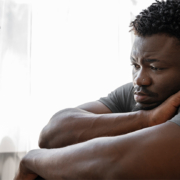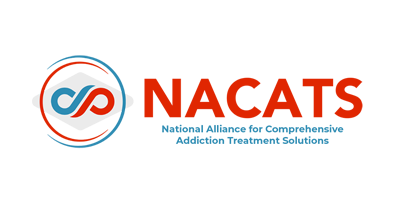
In 2022, 89 people in White County, Tennessee, experienced a nonfatal opioid overdose. For context, only 3 people in White County died in car accidents during the same year.
For many people, an opioid overdose is a wake-up call. It’s the moment when they realize the reality of their opioid use disorder (OUD). If you’re ready to begin your recovery journey, you might not know where to start – especially if you’ve heard a lot about different medications.
At ReVIDA® Recovery, we want everyone in Appalachia to have the information they need when it comes to finding a treatment plan that works for them. One question we get from a lot of people who are just starting medication-assisted treatment (MAT) is, “How long does Sublocade last?”
In this piece, we’ll lay out the facts about the once-a-month shot and how it will benefit you throughout recovery.
Table of Contents
Using Medication-Assisted Treatment to Treat OUD: What Is Sublocade?
Sublocade is an extended-release medication that uses the active ingredient buprenorphine to treat OUD. Buprenorphine is a partial opioid agonist, which means it binds to the same receptors as any other opioid but with less impact. This active ingredient is used safely and effectively in multiple medications to treat OUD.
A partial opioid agonist like buprenorphine is effective at treating OUD because it drastically reduces withdrawal symptoms and improves cravings. Since buprenorphine attaches itself to opioid receptors, your body feels like you still have opioids in your system. This means you don’t experience as many cravings for opioids, and you don’t have as intense flu-like withdrawal symptoms.
At the same time, you won’t feel the euphoric relaxation that you associate with other opioids. This is because of what’s known as a “ceiling effect.” Even in increasingly large doses, buprenorphine doesn’t create the desired effects of opioids, which makes it a safe tool for people living with OUD. Since the buprenorphine in Sublocade binds to your opioid receptors, the medication also prevents you from feeling the effects of other opioids.
Sublocade continues to help down the road as well. The majority of people with OUD will go on to experience post-acute withdrawal syndrome (PAWS). The symptoms of this condition are mostly psychological. For example, you’re likely to experience brain fog, anxiety, and difficulty concentrating. This happens because your brain still has to readjust to the levels of dopamine and endorphins that your body naturally produces once opioids are no longer in your system. Sublocade will reduce the symptoms of PAWS so you can stay focused on other parts of recovery.
How Long Does Sublocade Last? How the Extended-Release Formula Benefits You
A Sublocade shot is administered by a doctor once a month. The medication is injected as a liquid. Once it enters the body, it forms into a small pouch of gel called a depot. The depot releases a steady stream of buprenorphine throughout the month. This steady stream of buprenorphine throughout the month ensures consistent, impactful, daily medical treatments between doctor’s visits.
One of the biggest benefits of the extended-release formula is that you never have to worry about missing a dose. If you’re not used to taking medication, making sure to take it at the same time every day is challenging. Sublocade ensures that you don’t have to worry about the consequences of accidentally going a day without taking your medication.
Once monthly, Sublocade will ensure that you have the support you need to get up and face recovery every day, safe in the knowledge that you are on the right path.
What Are the Signs That Sublocade Is Right for Me?
Finding the right treatment is the key to success in recovery. How do you know if MAT treatment using Sublocade is the best option for you?
Not everyone who takes opioids has OUD, but it’s important to recognize the signs so that you know when to reach out for help.
Signs of OUD include:
- Obsessing about when you can get opioids
- Continuing to take opioids despite multiple attempts to stop
- Building a tolerance (or needing more and more opioids to feel their effects)
- Spending money that you don’t have to buy opioids
- Continuing to take opioids despite the fact that they are causing health problems
- Prioritizing opioids over your responsibilities
- Hiding your opioid use from loved ones
One of the major signs of OUD is withdrawal. Opioid withdrawal causes symptoms that mimic the flu, including body aches, chills, sweating, vomiting, and diarrhea. Certain psychological symptoms are also common, including increased irritability and depression. While these symptoms aren’t life-threatening, they are difficult to manage without support.
Treatment that utilizes Sublocade will provide you with the care you need to successfully stop taking opioids.
Sublocade and Suboxone: What’s the Difference?
Suboxone is another medication commonly used to treat OUD. When deciding what medication is right for you, it’s important to understand the key differences between the 2 of them.
Sublocade
- Treating OUD
- Buprenorphine
- Injected by a doctor
- Once a month
Suboxone
- Treating OUD
- Buprenorphine and naloxone
- Taken orally
- Daily
Sublocade and Suboxone are both safe, effective treatment options for people living with OUD. When it comes to choosing a buprenorphine-based treatment option, you can’t go wrong.
You and your doctor will work together to decide which medication is the best fit for your goals in recovery. For example, if you want a medication that allows you to easily adjust the dosage, Suboxone would be a good fit for you. If you’re nervous about adding a new medication to your daily regimen or you’re afraid of what could happen if you miss a dose, then Sublocade will be a better fit for your lifestyle. Regardless of your choice, MAT will be an effective tool for treating your opioid use disorder.

What Treatment Programs Use Suboxone in Appalachia?
When you choose a MAT clinic, medication isn’t your only concern; it’s just one of the tools necessary for healing. You should also consider the additional treatment options that the clinic offers.
Let’s review 3 of the other services that are important for recovery.
- Individual Therapy. Having a therapist you trust is a vital part of making a successful recovery from opioids. The right therapist will empower you to discover the tools you need for a lifetime of healing. Cognitive behavioral therapy (CBT) is an effective, evidence-based treatment option that will help you in recovery. In CBT, you and your therapist will work together to understand the relationship between your thoughts, feelings, and actions. Then, you’ll break unhelpful thought patterns and find better ways to handle big emotions.
- Group Therapy. Connecting with a group of individuals who understand and relate to your experiences is an essential part of the healing process. Group therapy serves as a regular reminder that you aren’t alone. This is a judgment-free space where you’ll have the opportunity to talk about your experiences with people who understand where you’re coming from. Together, you and your cohort will lift each other up during difficult times and celebrate your achievements.
- Support Services. When it comes to building the foundation for a lasting recovery, you don’t just change your relationship with opioids; you change your whole life. A good MAT clinic should help you do that. Some MAT clinics will connect you with additional tools you need, like employment opportunities, affordable housing, SNAP benefits, and more.

Sublocade Opioid Treatment Programs in Appalachia
No one said that recovery from OUD was going to be easy. But the right treatment can make a big difference. Sublocade treatment means a once-a-month shot that will keep you from feeling the full extent of opioid withdrawal. Medication will empower you to focus on getting to the bigger picture behind your OUD. With a combination of individual and group therapy, you’ll get to the root cause of your OUD and develop the coping skills you need to manage a lifetime in recovery.
ReVIDA® Recovery will support you at every stage of your recovery from OUD. All of our patients receive MAT to treat OUD, so when you walk into a ReVIDA® treatment center, you know everyone here has shared experiences. You’ll also have access to flexible outpatient therapy that works with your schedule, and we’ll help connect you with outside resources that you need to succeed. To get started today, call us at 423-631-0432 and learn more.
ReVIDA®: Reclaim your life









